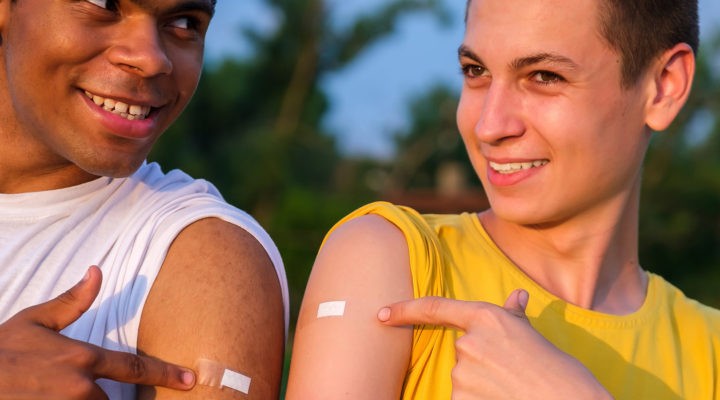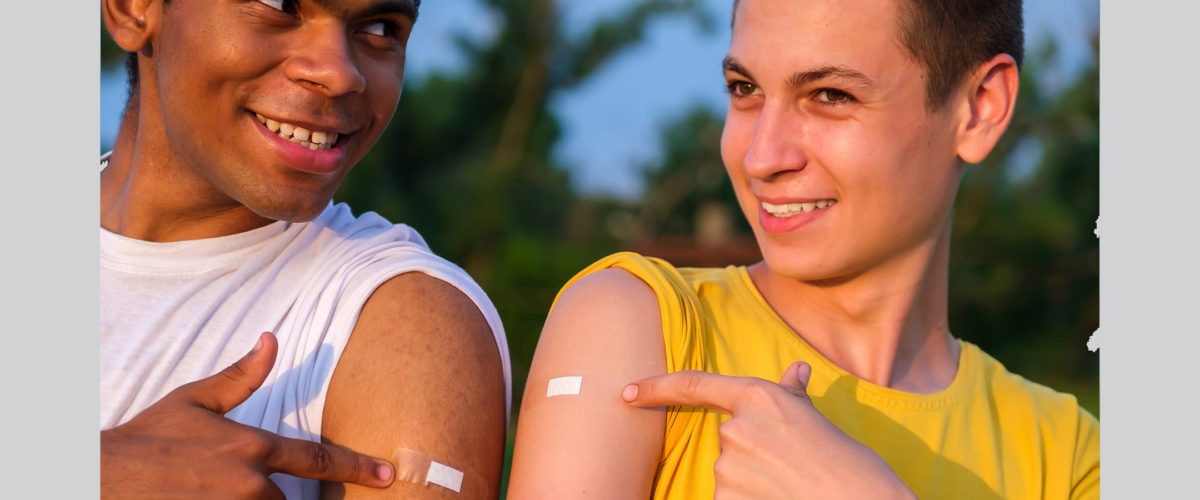Americans’ attitudes about COVID-19 vaccination remain largely unchanged since January, but about one-fifth of those who said they would not get vaccinated have changed their minds and taken the jab.
A common reason for changing their minds is seeing family and friends safely vaccinated without ill effects, according to a new report from the Kaiser Family Foundation. Conversely, those who continue to resist vaccination point to evidence of family and friends experiencing even temporary side effects from the vaccine as a reason for their refusal.
The Kaiser study has followed a nationally representative sample of adults over the past six months. At the beginning of the year, respondents were asked about their intentions to be vaccinated. Six months later, they were asked whether they had been vaccinated and why they had chosen to be nor to be.
This study is unique in that it asks open-ended questions, providing a wealth of insights into the reasoning, fears and hopes of those surveyed.
Why people changed their minds
Among those who did not intend to get vaccinated but subsequently have been vaccinated, Kaiser researchers reported this finding: “Many of these individuals noted the role of their friends and family members as well as their personal doctors in persuading them to get a vaccine. Seeing their friends and family members get vaccinated without serious side effects, talking to family members about being able to safely visit, and conversations with their personal doctors about their own risks were all persuasive factors for these individuals. A small but meaningful share also say the easing of restrictions for vaccinated people was a factor in their decision to get a vaccine.”
“Many of these individuals noted the role of their friends and family members as well as their personal doctors in persuading them to get a vaccine.”
Overall, the study found that 92% of those who said in January that they planned to get vaccinated “as soon as possible” have received at least one dose of a COVID-19 vaccine, as have 54% of individuals who said they wanted to “wait and see” before getting vaccinated.
However, 76% of those who said in January that they would “only get vaccinated if required” or said they would “definitely not” get a COVID-19 vaccine remain unvaccinated today.
And the study also found a small but statistically significant group of Americans who have changed their minds from being open to vaccination to now being suspicious. Among those who in January said they planned on getting vaccinated “as soon as possible” or wanted to “wait and see” before getting a vaccine, one-fourth are not vaccinated and nearly one in 10 have decided they will take the shot only if required.
When asked to explain their change of mind, respondents often told researchers they now have concerns about possible side effects of the vaccines.
“What’s changed my mind is people telling me how sick they got after they received the vaccination,” a 54-year-old white male told Kaiser. “I really don’t want to be sick from a vaccination, so I kind of lost interest.”
“There’s still not enough data proving that the vaccine is effective and definitely not enough data showing the side effects,” said a 54-year-old Black female.
Family and friends do have influence
A common refrain from individuals who have been vaccinated but have family and friends who refuse vaccination is that there’s nothing left to talk about. The vaccinated often feel like their appeals now are futile.
Two-thirds (65%) of vaccinated adults — including many of those who were previously vaccine hesitant — say they have tried to persuade close friends or family members to get vaccinated.
Two-thirds (65%) of vaccinated adults say they have tried to persuade close friends or family members to get vaccinated.
While the Kaiser data does show Americans have hardened their positions for and against vaccination, it also points to the influence of family and friends as one of the key ways to move vaccine deniers into vaccine accepters.
“Conversations with family members and friends have played a major role in persuading people to get vaccinated,” Kaiser reported. “Two-thirds of vaccinated adults say they have tried to persuade their friends and family members to get a COVID-19 vaccine, and 17% of adults who are now vaccinated after saying in January they planned on waiting to get vaccinated, would only get it if required, or would definitely not get vaccinated, say they were persuaded to do so by a family member and 5% say they were persuaded by a friend.”
Family and friends also play another motivational role, the research found: “Others cite protecting friends and family members as the main reason for getting vaccinated, and others offer being able to see their friends and family members as well as family pressure or encouragement as the main reasons why they chose to receive a vaccine.”
And it turns out that the unvaccinated are watching their vaccinated family and friends to see how they fare long-term. Kaiser reports: “When asked what would motivate them to get vaccinated against COVID-19, most in the ‘wait and see’ group say they just want more time to see how the vaccine affects others who have already gotten it.”
“Almost all of my friends were vaccinated with no side effects,” a 64-year-old Black female told researchers, explaining why she chose to be vaccinated after previously being cautious.
“Family members and friends who got vaccinated had no serious side effects. Lots of regulations got lifted for vaccinated people,” said a 43-year-old Asian female.
Individual counsel from their trusted doctors was persuasive in their decision to get vaccinated. But the encouragement of family and friends was even more persuasive.
“I became convinced that some of the rumored side effects were not true,” said a 69-year-old white male.
Respondents said individual counsel from their trusted doctors was persuasive in their decision to get vaccinated. But the encouragement of family and friends was even more persuasive.
False information continues to influence
Among the most vaccine resistant, however, feelings remain strong, even if fueled by demonstrably false information.
“COVID was not the pandemic it was made out to be, and I am not getting vaccinated for it,” a 26-year-old white female told Kaiser.
“This event seems more and more just like the flu. Everyone is exposed and has the same chance of getting it. I never got a flu vaccine either. This whole mask thing is a joke. Most people wear them beneath their nose or even chin. This event is over for me except as mandated to me by those above me who control me in some way such as employer,” said a 58-year-old Black male.
The Kaiser researchers identified suspicions about the vaccines as a recurring source of concern among the most ardent vaccine deniers. The most common concern is about side effects (21%), followed by concerns that the vaccines are too new, too unknown or not tested enough (16%).
Also, 12% said they haven’t gotten vaccinated because they don’t think they need the vaccine and 7% said they just routinely don’t get any vaccines.
Related articles:
6 things you should know about the COVID vaccine | Opinion by Christy Edwards and Jen Dilts
Evangelical leaders explain why skeptical evangelicals should get vaccinated
I’m an infectious disease doctor: Here’s why pastors need to lead their flocks to be vaccinated | Opinion by Leland Allen III
My life as a bad baseball player and why you should get vaccinated | Opinion by Mark Wingfield


